I.25 (Bibracte)
“Caesar, having removed out of sight first his own horse, then those of all, that he might make the danger of a11 equal, and do away with the hope of flight,
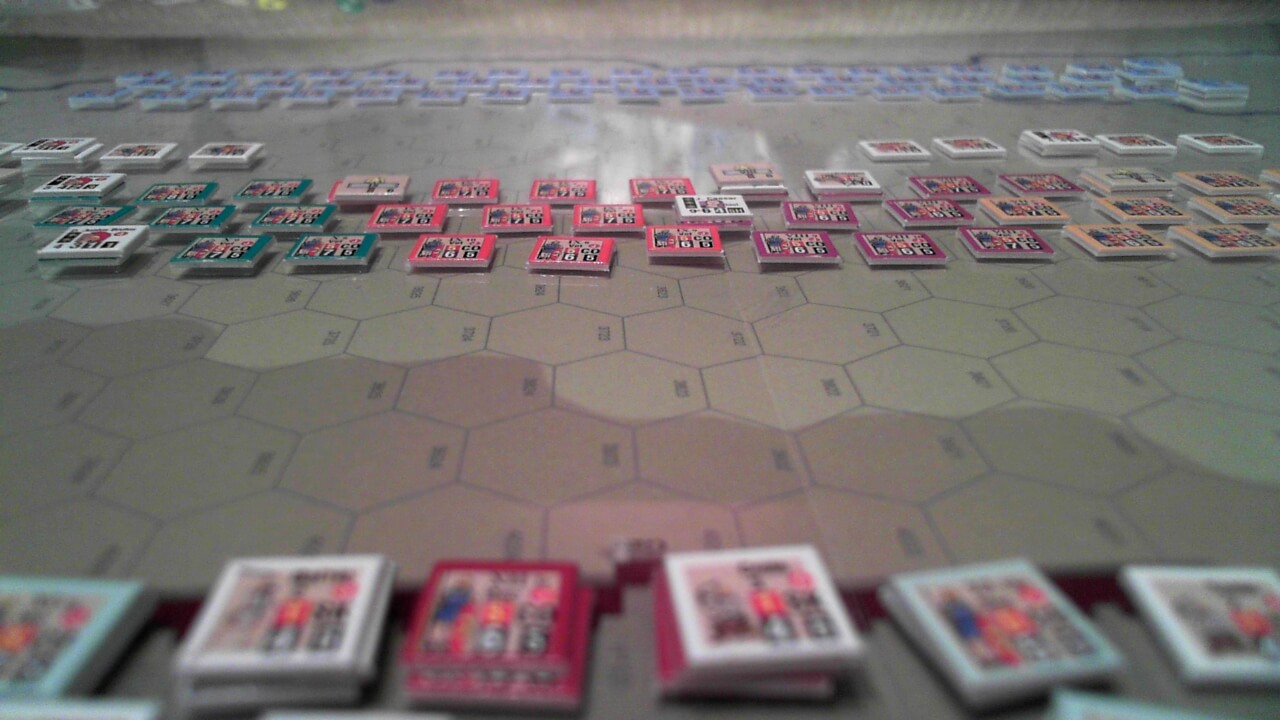
after encouraging his men, joined battle. His soldiers hurling their javelins from the higher ground, easily broke the enemy’s phalanx. That being dispersed,
[slideshow]
they made a charge on them with drawn swords. It was a great hinderance to the Gauls in fighting, that, when several of their bucklers had been by one stroke of the (Roman) javelins pierced through
and pinned fast together, as the point of the iron had bent itself, they could neither pluck it out, nor, with their left hand entangled, fight with sufficient ease; so that many, after having long tossed their arm about, chose rather to cast away the buckler from their hand, and to fight with their person unprotected.
At length, worn out with wounds, they began to give way, and, as there was in the neighborhood a mountain about a mile off, to betake themselves thither.”
Here we have missile fire followed by a charge with drawn swords. Caesar tells us that at length the Gauls began to give way, though whether that is
before or after the charge with swords is not clear from the English translation.
Helvetii at Bibracte: “Milites loco superiore (the soldiers on higher ground)
pilis missis (having hurled their pila)
facile hostium phalangem perfregerunt (easily breached the enemy ‘phalanx’).
Ea disjecta (that being disrupted)
gladiis destrictis (with drawn swords) in eos impetum fecerunt (they [the legionaries] made an attack against them [the Helvetii]).”
The ‘impetum’ is made ‘gladiis destrictis’, with swords drawn.
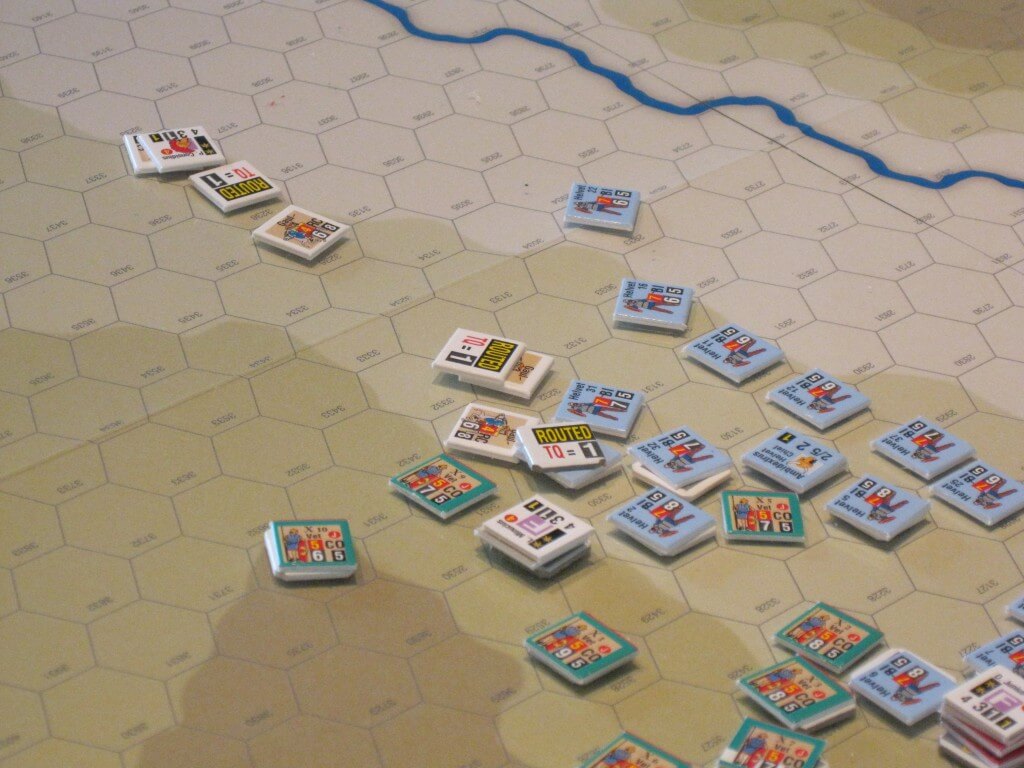
The Helvetii are ‘fighting’ (ad pugnam) until, exhausted by wounds they fall back (pedem referre) to a mountain, and
“… during the whole of this battle, although the fight lasted from the seventh hour to eventide, no one could see an enemy with his back turned.” (BG I.26)
Related articles
- A Bridge To Near “iacta alea est” [PVC] part2 (
- Bibracte 58 B.C. Intro (
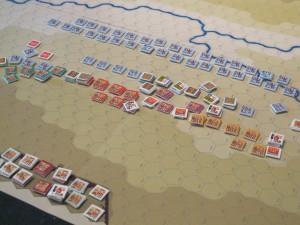
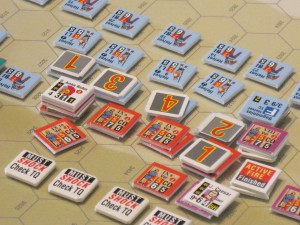
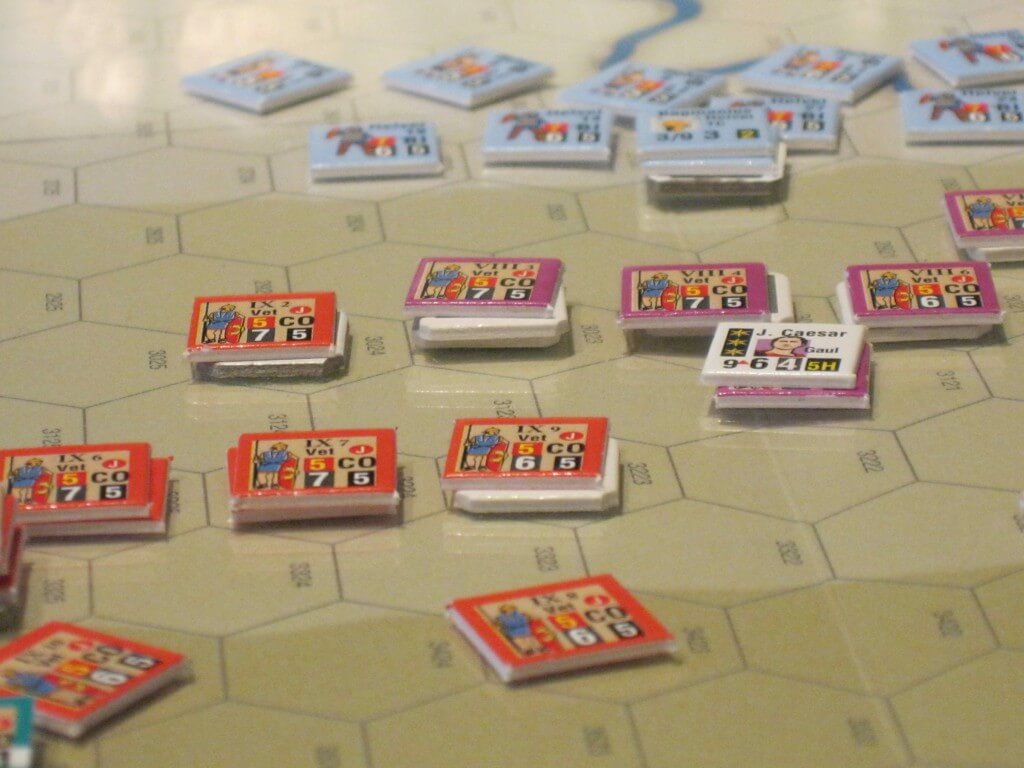
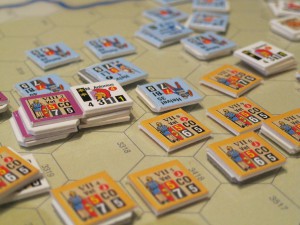
2 thoughts on “Bibracte, in Caesars words”
Comments are closed.